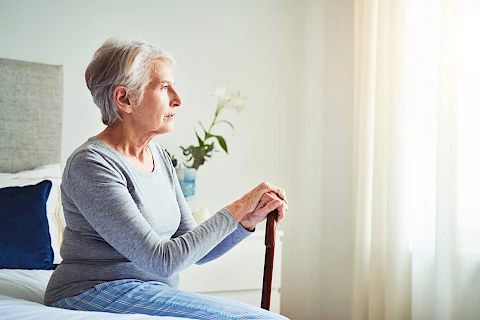
Seasonal Affective Disorder (SAD) is a type of depression that typically occurs during the fall and winter months when there is less natural sunlight. This condition can impact anyone, but seniors are particularly vulnerable. Recognizing the signs of SAD in seniors is crucial for providing timely and effective support.
The Impact of Seasonal Affective Disorder
Seasonal Affective Disorder is more than just the winter blues. It is a type of depression that usually manifests in the colder, darker months of the year. Symptoms can include sadness, fatigue, irritability, and changes in sleep and eating patterns. Seniors may be more affected due to less exposure to daylight, decreased physical activity, and the possibility of more time spent alone.
It's important to differentiate between SAD and general depression. While both conditions share similar symptoms, SAD is season-specific and typically improves during the spring and summer months.
Recognizing the Signs of SAD in Seniors
Caregivers need to be vigilant in recognizing the signs of SAD in older adults. Common symptoms to watch for include:
- Fatigue and low energy levels
- Irritability or sudden mood changes
- Changes in sleeping patterns, such as sleeping more than usual or experiencing insomnia
- Weight gain or loss due to changes in appetite
- A loss of interest in activities they once enjoyed
Early detection is vital, leading to quicker and more effective treatment, and preventing the symptoms from worsening.
Effective Strategies for Managing SAD
Once SAD is identified, there are several strategies to help manage its symptoms and improve the well-being of seniors.
Light therapy is one of the most effective treatments for SAD. It involves sitting near a specially designed light box that mimics natural sunlight. Use the light box for 30 minutes each morning for the best results. Consult a healthcare provider for specific recommendations.
Exercise can significantly improve mood and energy levels. Simple activities like walking, stretching, or light aerobic exercise can be beneficial. Choose activities that are suitable for the senior's physical abilities.
Maintaining social connections can help alleviate loneliness and isolation which are common in SAD. Encourage seniors to participate in social activities such as joining a club, attending community events, or having regular phone or video chats with family and friends.
A balanced diet can also play a key role in managing SAD. Encourage seniors to eat nutrient-rich foods that boost mood, such as fruits, vegetables, lean proteins, and whole grains. It's also wise to avoid excessive consumption of sugary snacks and beverages, which can lead to energy crashes.
When to Seek Professional Help
Sometimes, despite best efforts, professional help may be needed. Signs that indicate the need for professional intervention include persistent sadness or depression that doesn't improve over time, thoughts of self-harm or suicide, severe changes in sleep or eating patterns, and loss of interest in most activities or relationships.
Various professionals can provide help, including therapists, psychiatrists, and primary care doctors. If you notice these signs, approach the topic gently and express your concern and desire to support them in finding appropriate help.
Provide More Support for Seniors With SAD
Recognizing and managing Seasonal Affective Disorder in seniors is essential for their quality of life. Caregivers can support their loved ones by knowing the signs and symptoms. Encouraging light therapy, physical activity, social interaction, and a balanced diet can make a significant difference.
Don't hesitate to seek professional assistance if you or a loved one needs more care and support during the cooler months. If you're in Hamilton, Fairfield, Middletown, Cincinnati, or Milford and need assistance with basic home care tasks, contact Senior Helpers Greater Cincinnati today.